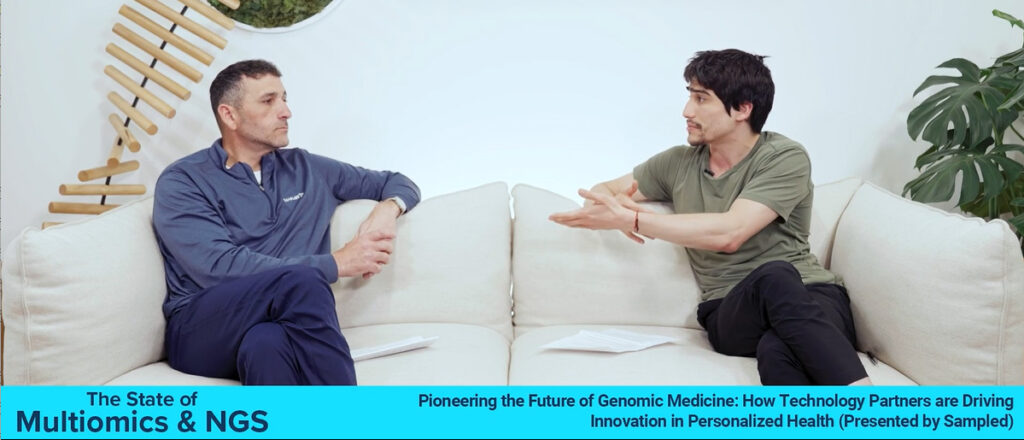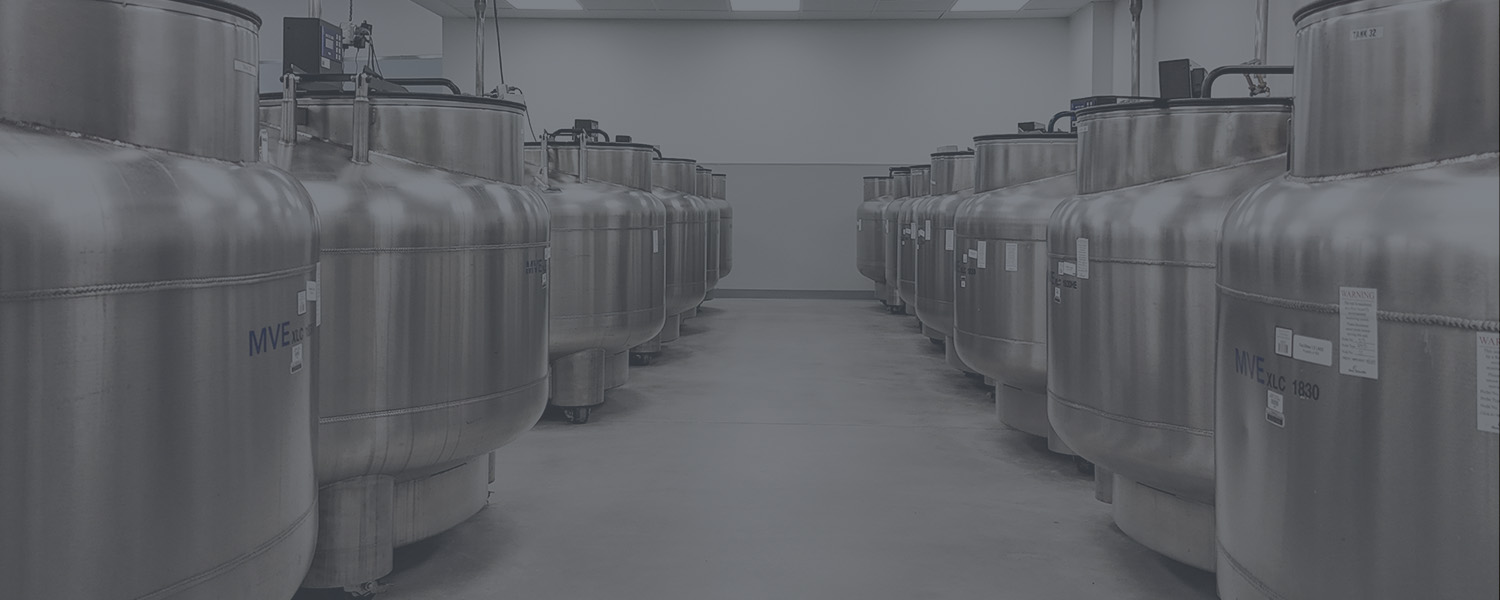The 2025 State of Multiomics & NGS hosted by Genetic Engineering & Biotechnology News (GEN) featured some of the world’s most brilliant minds in the field of multiomics. Francis Collins, MD, PhD, ‘father’ of the Human Genome Project (HGP), was featured as the keynote speaker and shared his insights on the transition from the HGP to the modern era of multiomics. Other key speakers included Jacob Thaysen, PhD, CEO of Illumina, the former CTO of Oxford Nanopore Technologies, and leading universities in the field of genomics and single-cell analysis.
The Sampled breakout session featured our Chief Scientific Officer (CSO) Shareef Nahas, PhD alongside the CEO and Founder of Nucleus Genomics, Kian Sadeghi. Their discussion covered many sub-topics within the multiomics umbrella, including how genome sequencing has evolved over the last 20 years, where the field is going, and how to bring genomic sequencing to the clinic and make it more widely available to the public.
The Evolution of Multiomic Technologies Over the Last 20 Years
Multiomic techniques are not a recent breakthrough. However, they have yet to reach their full potential. Modern research, including clinical studies, demands the ability to perform multiomics at scale, providing multidimensional insights into patient health before, during, and after treatment. This level of information, including data generated by NGS, opens the door for truly personalized medicine. Ensuring this information can be extracted at scale and with quality requires dedicated infrastructure and expertise.
Achieving Quality at Scale to Drive the Personalized Medicine Revolution
The discussion between Shareef and Kian focused on how to bring the promise of genomics-based medicine to the real world. Part of the solution, they believe, lies in providing the scalability and quality needed for actionable insights at scale.
Their chat covered the early years of omics and is a fascinating discussion of where we have come from and where we are going. Genomics offers valuable insights at both the individual and population levels. Large-scale studies are deepening our understanding of disease, while growing access to genome sequencing, along with improved education about it, empowers individuals to take greater control of their health.
Expanding Access to Genetic Insights
Many diseases have genetic roots, yet 90% of people are unaware they may carry genetic risk factors. This untapped information could empower individuals to take a more proactive approach to their health, improving their long-term wellbeing and lessening the burden on the healthcare system. Early tools like microarrays offer only limited genetic insights, but NGS can now analyze entire genomes at rapidly lowering costs. With recent advances in technology, logistics, and data reporting, NGS insights are more accessible and affordable than ever, bringing us closer to a future where a single cheek swab can reveal a person’s complete genomic health profile.

Shareef and Kian emphasized the need to shift our understanding of genetics, from viewing it as a separate or secondary aspect of medicine to recognizing it as a central component of healthcare, providing essential information for guiding personalized, effective care.
The Need for Technology and Expertise at Scale
A key challenge highlighted during the breakout session was managing the massive volume of data and samples needed to make genome sequencing practical at the population level. Each full genome generates an enormous amount of information that must be accurately analyzed and converted into actionable insights. Scaling personalized genomics to serve a broader population requires advanced logistics, expert sample handling, and high-quality analytical infrastructure, resources that only a few facilities can currently provide. Sequencing is a highly sensitive technique, and maintaining data accuracy is crucial for effective patient care, making expert oversight essential at every stage. To support this level of quality and scale, large, centralized facilities are indispensable.
Watch the Full Summit Online
The GEN Summit highlighted the crucial role of multiomics in the future of healthcare. Here’s a snapshot of the talks you don’t want to miss out on:
Jacob Thaysen, PhD, CEO of Illumina
- How Illumina is driving down the cost of sequencing
- The importance of AI in large cohort studies and multiomics approaches
Cecilia Lindskog, PhD, Research Group Leader at Uppsala University & Fabian Coscia, PhD, Research Group Leader at Max Delbrück Center for Molecular Medicine
- Exciting developments in spatial proteomics for precision medicine
- Mapping the “Human Protein Atlas” to understand health and disease
Robert Meltzer, PhD, Associate Principal Scientist at Illumina
- Enabling single cell RNA sequencing in any lab setup
Clive Brown, Former CTO of Oxford Nanopore Technologies
- Insights from a veteran of nanopore technology
You can watch these sessions, and all of the others, for free online!
Already thinking about your next big multiomics project?
Get in touch with one of our experts today to discover how we can scale your research to generate even greater insights.


